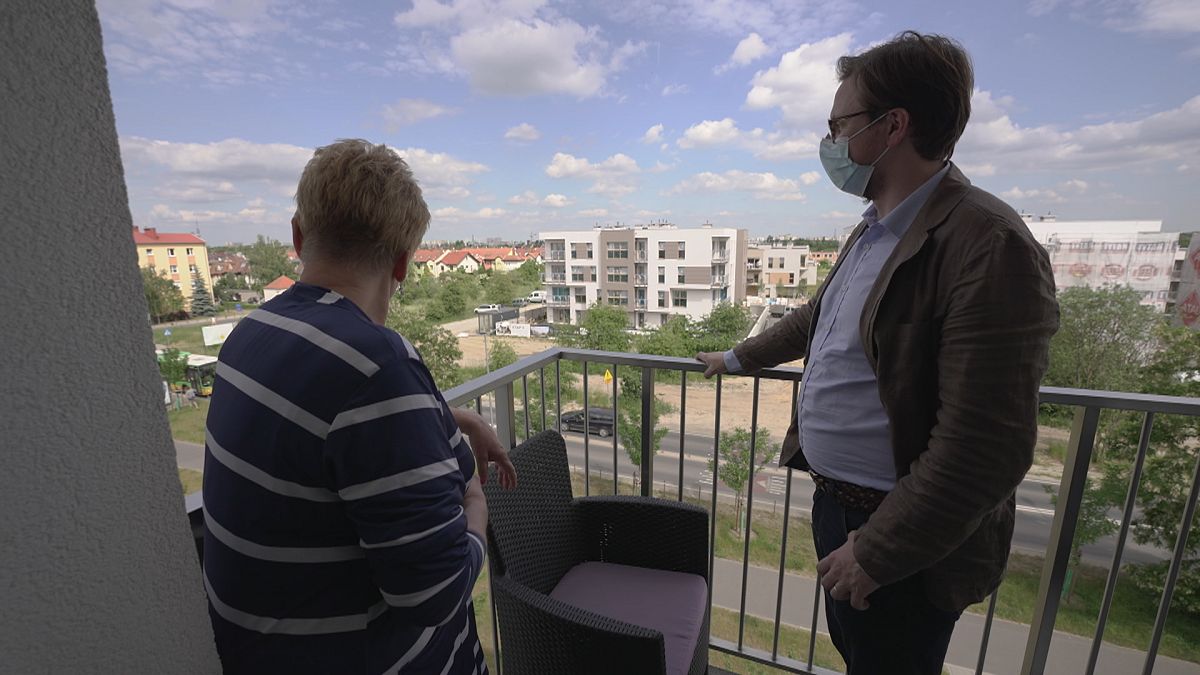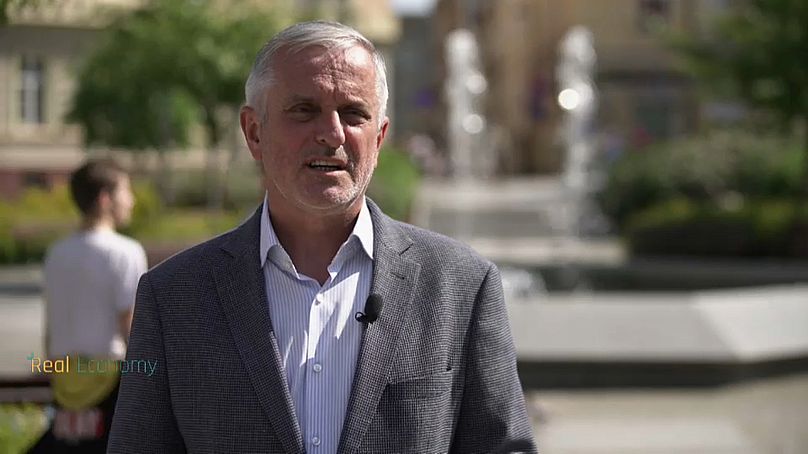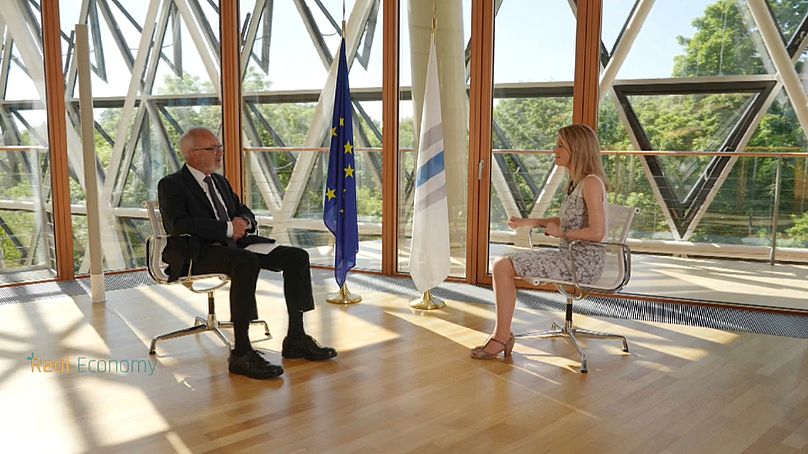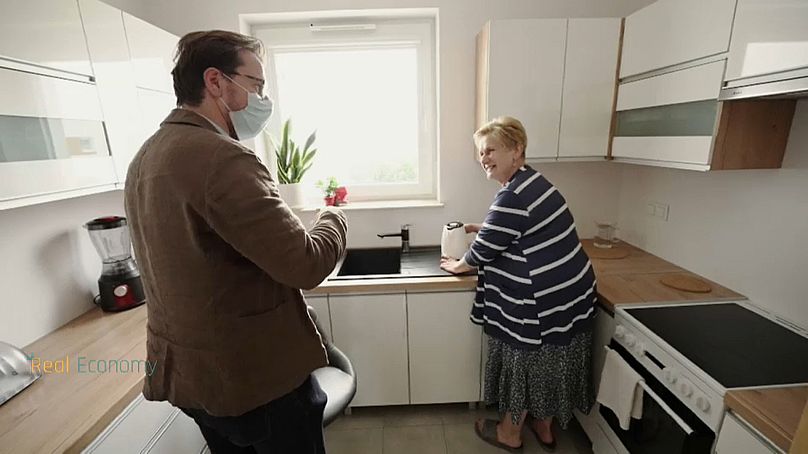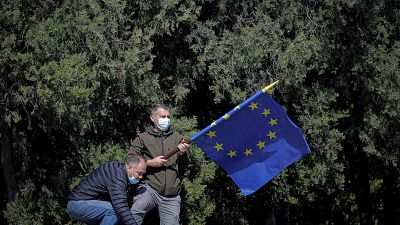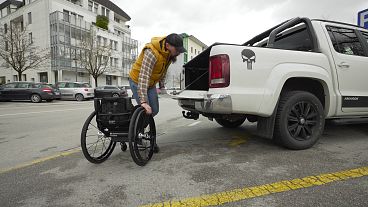The pandemic has caused European investment to slump. But the EU has a plan to mobilise billions in capital and guarantee investments. It’s called InvestEU and it’s also looking to boost investor confidence whilst giving a helping hand to digitalisation and the green transition on the way.
Europe needs investment in its businesses, innovation and infrastructure if is to meet its climate goals and kickstart the economic recovery.
However, Almost half of EU companies say they are planning to cut investment in the aftermath of the Covid pandemic.
The pandemic has made investment decisions "more complicated" explains Werner Hoyer, President of the European Investment Bank (EIB) as "the revenues and the resources of the companies are getting scarcer and scarcer". It is "a big concern" for "Europe's competitiveness and role in the world", he says.
How is InvestEU helping?
A new EU programme, InvestEU, is mobilising billions of euros in capital by taking on some of the financial risks for investors. It is guaranteeing 26 billion euros from the EU budget and 7 billion from partner banks. It is expected to mobilise around 370 billion euros in public and private financing.
The money will go towards projects that contribute to innovation and going digital, support SMEs, particularly those hard hit by the COVID crisis, foster social inclusion and boost sustainable infrastructure.
At least 30% of all the investments must contribute to building a greener Europe, supporting Europe's green transition.
The European Commission is working in partnership with the European Investment Bank, as well as other national promotional banks and international financial institutions.
InvestEU follows in the steps of the European Fund for Strategic Investment (EFSI), also known as the Juncker Plan, which successfully generated more than 500 billion euros in extra investment.
What does this investment look like on the ground?
The European Union is working on revitalising the old coal-mining town of Wałbrzych, in the heart of Polish Silesia. For 500 years it has been dependent on coal and now this is changing.
Wałbrzych received a 14 million euro loan from the EIB to help it move past the coal era and regenerate the town centre. The loan was partly backed by the European Commission.
The mayor of Wałbrzych, Roman Szelemej, says this has meant "rebuilding a quarter of the Old City". This has seen a "revitalisation of social lives" particularly for new families who can "start a new life, providing a new life for the old city".
The EIB's Werner Hoyer believes that investing in infrastructure and in skill training in places like Wałbrzych is essential.
"The coal miner who jumps out of the last coal pit in southern Silesia will not be the head of the digital Start-Up in two weeks, so we need to help these people to move to the new generation of jobs", he explains.
Social housing
Wałbrzych isn't the only town benefiting from the European investment plan. In Poznan, Poland's fifth biggest city, they are focusing on social and affordable housing.
Jacek Jaskowiak, Poznan's mayor, expains that "we have to build some apartments for young people, for senior citizens".
He says that if these people get a little money and help to settle down in Poznan, "then they can find a good job and can send their children to the kindergarten". Affordable housing is a strategy to bring more life and work back to the city.
The programme is expected to create homes for 3000 to 4000 people.
69-year-old Aleksandra is one of those who has already benefitted from this project. She says she was thrilled when she was able to move into her new flat with a balcony.
For financial reasons, she says she would never have been able to buy somewhere by herself.
The EIB safety label
To fund this housing project, the developer PTBS, turned to the EIB for a loan of half the total cost. It helped to compensate for a reluctance from investors.
Andrzej Konieczny, CEO of PTBS, explains that banks didn't have confidence in them at first because the project was different to work they usually finance. However, they managed to come to an agreement with the EIB "and they trusted us", he adds.
The company expects this project to be a success and with the EIB's 'seal of approval', it is looking towards future projects.
From July 2021, InvestEU will replace the Juncker plan. This time around, local banks, like the Polish one BGK, will also work alongside the EIB.
